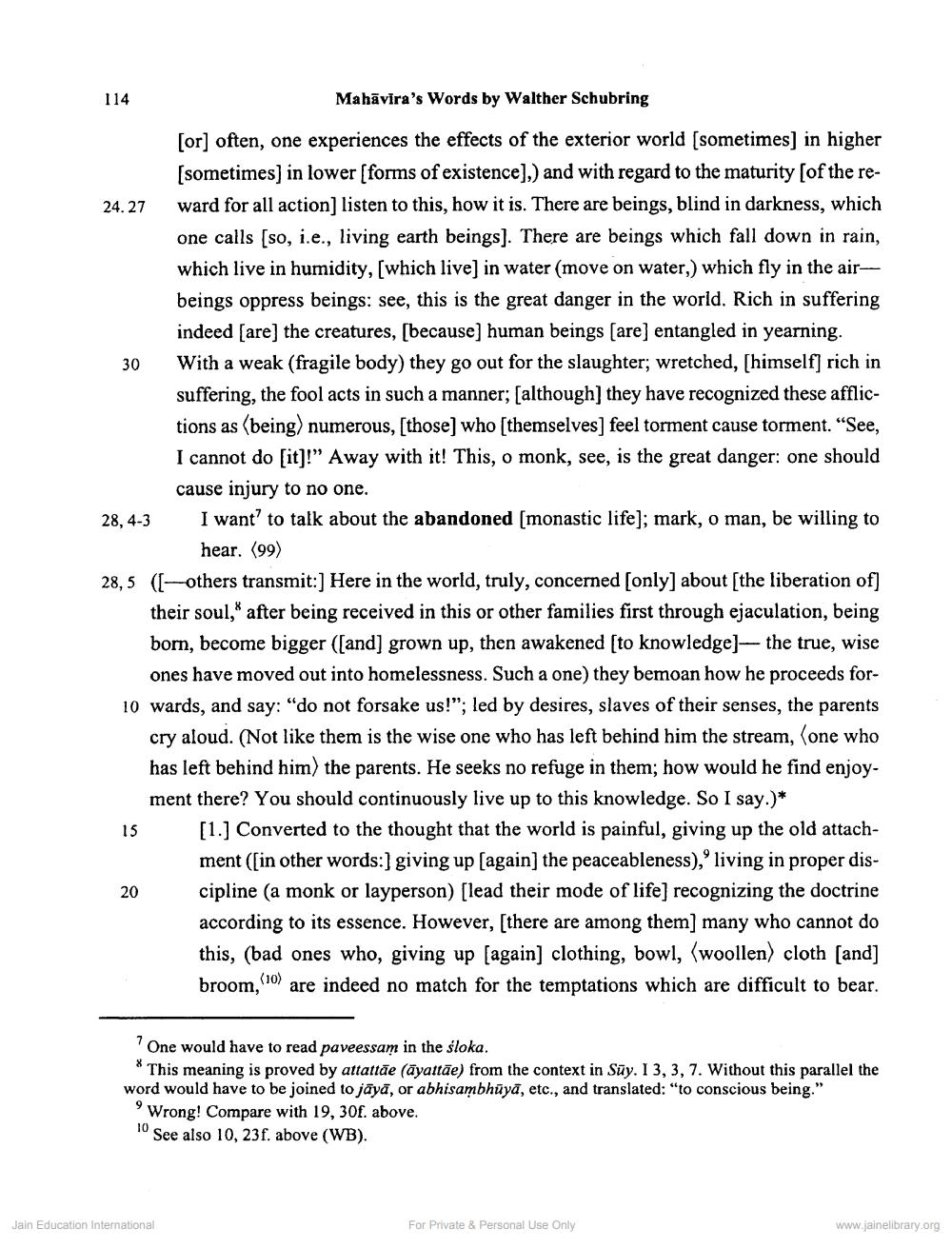________________
114
Mahāvira's Words by Walther Schubring [or] often, one experiences the effects of the exterior world (sometimes) in higher
[sometimes) in lower (forms of existence],) and with regard to the maturity (of the re24.27 ward for all action] listen to this, how it is. There are beings, blind in darkness, which
one calls [so, i.e., living earth beings). There are beings which fall down in rain, which live in humidity, [which live) in water (move on water, which fly in the airbeings oppress beings: see, this is the great danger in the world. Rich in suffering
indeed (are) the creatures, [because] human beings (are) entangled in yearning. 30 With a weak (fragile body) they go out for the slaughter; wretched, [himself) rich in
suffering, the fool acts in such a manner; (although) they have recognized these afflictions as (being) numerous, [those who [themselves feel torment cause torment. "See, I cannot do [it]!" Away with it! This, o monk, see, is the great danger: one should
cause injury to no one. 28, 4-3 I want to talk about the abandoned (monastic life]; mark, o man, be willing to
hear. (99) 28,5 (1-others transmit:) Here in the world, truly, concerned [only] about [the liberation of]
their soul, after being received in this or other families first through ejaculation, being born, become bigger ([and] grown up, then awakened (to knowledge] - the true, wise
ones have moved out into homelessness. Such a one) they bemoan how he proceeds for10 wards, and say: "do not forsake us!"; led by desires, slaves of their senses, the parents
cry aloud. (Not like them is the wise one who has left behind him the stream, (one who has left behind him) the parents. He seeks no refuge in them; how would he find enjoyment there? You should continuously live up to this knowledge. So I say.)*
[1.] Converted to the thought that the world is painful, giving up the old attachment (in other words:) giving up (again) the peaceableness), living in proper discipline (a monk or layperson) [lead their mode of life) recognizing the doctrine according to its essence. However, [there are among them] many who cannot do this, (bad ones who, giving up (again) clothing, bowl, woollen) cloth (and] broom, 10) are indeed no match for the temptations which are difficult to bear.
One would have to read paveessam in the sloka.
This meaning is proved by attattāe (āyattāe) from the context in Sūy. I 3, 3, 7. Without this parallel the word would have to be joined to jāyā, or abhisambhūyā, etc., and translated: "to conscious being."
Wrong! Compare with 19, 30f. above. 10 See also 10, 23f. above (WB).
Jain Education International
For Private & Personal Use Only
www.jainelibrary.org




